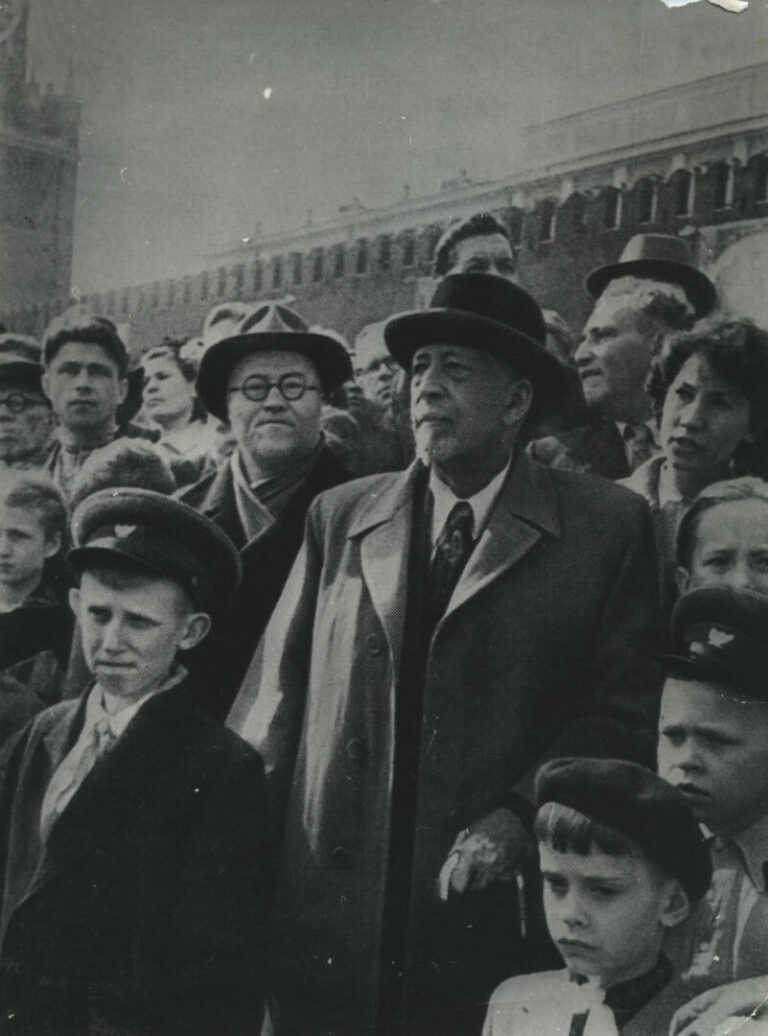In recent years, scholars and activists have brought renewed attention to W. E. B. Du Bois’s concept of abolition democracy. Initially coined in Black Reconstruction (1935), to describe both a political movement and a democratic ideal, abolition democracy has been taken up theoretically by Angela Davis, Allegra McLeod, and others to describe the ongoing process of dismantling global capitalism’s political, racial, gender, and economic hierarchies, alongside the simultaneous creation of reconstructed social relations, institutions, and practices governed by universal democratic participation, instead of by force. This article suggests that Du Bois continues to draw on abolition democracy as a conceptual framework in his post-Black Reconstruction work. Tracing the outlines of this framework in his unpublished manuscript A World Search for Democracy, I demonstrate how for Du Bois, the question of democracy remains fundamentally tied to the ongoing legacies of slavery. As he continues to draw on the Reconstruction era as an historical example, Du Bois gives further shape to the idea of abolition as a process in the present (rather than an event in the past). In doing so, he recuperates the unfulfilled promise of abolition democracy as a theoretical and practical model for considering alternatives modes of citizenship beyond the material, ideal, and embodied limits of liberal bourgeois democracy. Accordingly, I argue, in World Search, we can see the outlines of abolition democracy as a three-fold project: political-economic, epistemic, and affective. Each section of this article sheds light on one of these dimensions, drawing on theoretical models from Nancy Fraser, Sylvia Wynter, Sara Ahmed, and Dylan Rodríguez. By thus abstracting the concept of abolition democracy further from the historical movement analyzed in Black Reconstruction, I propose that Du Bois’s World Search offers lessons that can inform abolitionist theory and praxis today.
Keyword: radical politics
Review of Wayward Lives, Beautiful Experiments: Intimate Histories of Social Upheaval by Saidiya Hartman (W. W. Norton & Company)
This review considers how Wayward Lives, Beautiful Experiments: Intimate Histories of Social Upheaval poses a challenge to the reader. The invitation is to stay immersed within the everyday lives of Black women and girls, who navigated the terrains of New York City and Philadelphia at the turn of the twentieth century, without fleeting into spectacle or pathology. One may assume that such is an effortless proposition that is carried simply by the desire to think about Black women. However, Hartman tacitly demonstrates that a tremendous counter-historiography must be amassed to write the stories of those who have been underwritten by the tales of politics, great Black men, shining Black starlets, or the widely pathologized Black female figure. Thus, Wayward Lives weaves together a beautiful narrative of the social upheaval of Black women and girls at the dawning of Northern urban space, and what would later become known as the Black ghetto. At the same time, Hartman exposes the limits of the official record and narratives which relegate the lives of Black women as tertiary, as opposed to an integral political history in its own right.

